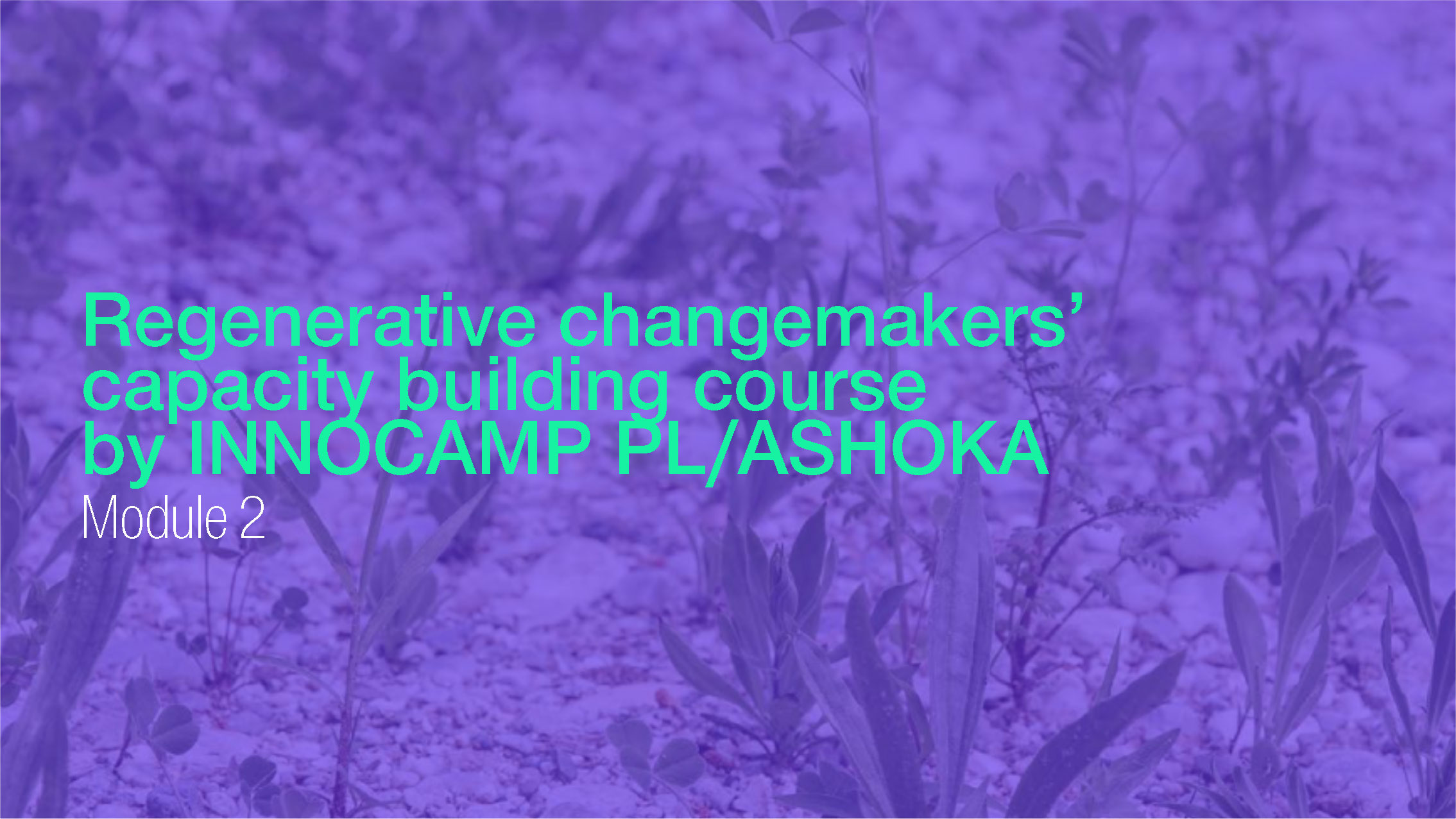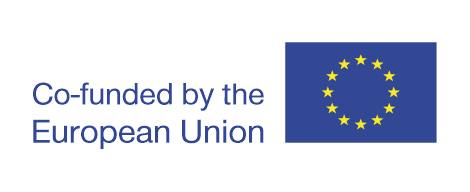The training and mentoring support for changemakers and their stakeholders engaged in city empty spaces regenerative pilots is based on ASHOKA’s concept of “everyone’s a changemaker” world. Change-maker is a person who is sensitive to human/environmental needs critical of any form of injustice and responds to uncertainties through creative action. Change-making like creativity can be learned. Model social entrepreneurs (e.g. Ashoka Fellows) who engage others in the development of their novel solutions serve at the same time as tutors of disruptive approaches to systemic change, applied creativity, entrepreneurial resourcefulness, impact analyses, courage, and ethical fiber/integrity. To become a change-maker one must experience freedom and intrinsic motivation to create value, be supported with basic resources, wise feedback, and achieve a level of resilience allowing one to face adversity or failure on the way to a successful improvement of life in an ecosystem. The most complex challenges ( like city inclusive transformations) must be handled through collective change-making by a “team of teams” approach in which every stakeholder with a collaborative mindset is a potential expert but needs to find the right community to put her/his resources to the best effect on systems and framework changes. Ashoka’s definition of impact implies all the general social transformations provoked by its beneficiaries rather than only part of the outcomes that can be attributed to the organization’s activities.
The program assumes the eco-systemic approach to changemaking starting with the inner-developmental work, service leadership skills (personal design) leading to multistakeholder collaborations, empathy-based co-designing and piloting innovative solutions (project design) to making them sustainable and reaching policy level (ecosystem).
In module 2, the learning laboratory focused on taking the multistakeholders’ collaboration to the level of innovation. The participants experientially learnt:
– the basic principles, disruptive innovation indicators, and techniques for leading creative problem-solving sessions for urban regeneration teams,
– tools for ideating alternatives to existing opportunities for systems change,
– best practices of creating long-term ownership over novel solutions, which allows the simultaneous implementation of multiple interventions and greater accountability, and
-case studies come from Ashoka fellows, the top 5 global social impact NGO as well as from the first success stories of Future DiverCities project partners.
INNOCAMP PL is an art-based training institute offering systemic interventions in which education stakeholders are included as changemakers. The company supports educators and employers through innovative pedagogy methods where ideas are generated, tested, and co-designed to offer innovative solutions. INNOCAMP PL is under the umbrella of Ashoka, ranked 5th socially impactful NGO in the world, and a leader in social innovation and changemaking. INNOCAMP PL has organized several innovation camps for social change in which Ashoka fellows served as facilitators and judges during the pitching sessions.
Module 2 Session 2: “Innovating in urban spaces” facilitated by Ashoka fellows Adam Jagiello-Rusilowski and Markus Raivio
Plan of the session
- Warm ups and check-ins
- Why do we need innovation in urban spaces: definition of radical social innovation and basic principles and indicators and example from Ashoka fellow (Dan Archer)
- Playbook for innovating: storytelling exercise (word by word) with volunteering participants; brain storming and prototyping in small groups (slide 13 challenge – how to connect the two sides); techniques and approaches to creative problem solving and design thinking; the narrative change approach (canvas): mindset shifts versus mouthset or technical shifts and slides (pages from the playbook 24, 26. 27, 20, 36, 40, 50, 51)
- From the individual to global networks of innovation
- Inspirations and challenges from Future DiverCities project
The flipped classroom element will require the study of the following:
Levels of stakeholders’ engagement video – https://www.youtube.com/watch?v=pe1QgUkWEd0
Collaborative Innovation article – https://www.wearecocreative.com/post/2018/04/01/its-not-collaboration-as-usual



